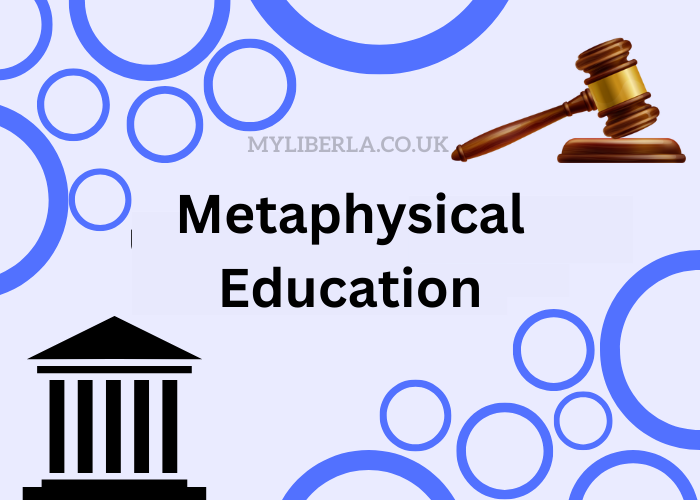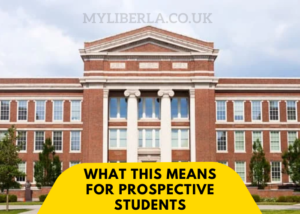Exploring the Challenges and Legal Disputes Facing Alternative Education Providers
In recent years, legal disputes involving institutions offering spiritual and metaphysical education have captured public attention. These cases raise questions about the credibility, legitimacy, and role of alternative education providers in a world dominated by traditional academic standards.
This article dives deep into the challenges faced by such institutions, from issues surrounding accreditation to concerns raised by students, alumni, and critics. By understanding the broader context, we can appreciate the unique contributions of these organizations and their impact on personal growth and enlightenment.
What Are Alternative Metaphysical Education Institutions?
Alternative education institutions that focus on metaphysical sciences cater to individuals seeking spiritual growth, personal transformation, and holistic understanding. Unlike conventional academic programs that emphasize technical or professional training, metaphysical education is designed to nurture the mind, body, and spirit.
Programs offered by these institutions often include courses in meditation, mindfulness, spiritual healing, esoteric studies, and holistic wellness. They aim to create a space for students to explore the deeper meaning of life, connect with their inner selves, and develop skills for self-discovery and empowerment.
Such institutions have gained international recognition, with students from all walks of life enrolling to expand their spiritual horizons. However, despite their popularity, they often face criticism and skepticism due to their unconventional focus and perceived lack of adherence to traditional academic norms.
Understanding the Nature of Legal Disputes
Legal challenges faced by these institutions often revolve around three main issues:
- Accreditation
Accreditation serves as a benchmark of quality for educational institutions, assuring students and stakeholders that a program meets established academic standards. However, many metaphysical education providers operate outside the conventional accreditation system, focusing instead on their unique mission of fostering spiritual growth. - Degree Legitimacy
Critics of alternative education often question the professional value of degrees awarded by these institutions. Employers, for example, may be hesitant to recognize qualifications from programs that lack traditional accreditation, leading to concerns about their applicability in mainstream career paths. - Student Expectations
Some legal disputes arise from misunderstandings between institutions and their students. While these programs clearly emphasize personal development over professional advancement, some students may enroll with unrealistic expectations about how their degrees will be perceived in the professional world.
Such challenges highlight the broader struggle of balancing the unique goals of alternative education providers with the demands of a credential-driven society.
Why Accreditation Matters
Accreditation is often seen as a symbol of legitimacy in the academic world. It reassures students that the institution adheres to recognized quality standards and provides degrees that hold weight in professional settings.
However, for alternative education providers, the focus is not necessarily on meeting external validation criteria but rather on delivering meaningful spiritual experiences and transformative learning.
While the absence of accreditation can raise doubts among potential students and critics, supporters argue that the essence of metaphysical education lies in its ability to inspire personal growth and self-awareness, which are difficult to quantify through conventional metrics.
Perspectives from Students and Alumni
Students and alumni of metaphysical education institutions often find themselves navigating a complex emotional landscape during legal disputes or public criticism of their alma mater.
On one hand, they may worry about the potential impact on the perceived value of their education. Questions such as “Will employers take my qualifications seriously?” and “How does this affect the credibility of the institution?” are common concerns.
On the other hand, many students remain strong advocates for the unique experiences and insights they gained through their education. For them, the value of metaphysical studies goes beyond external validation—it is deeply personal and transformative.
Numerous graduates share testimonials about how these programs have positively shaped their lives, improved their mental well-being, and provided tools for navigating life’s challenges. These stories underscore the significance of alternative education in fostering growth that cannot always be measured by traditional standards.
Institutional Responses to Legal Challenges
When faced with legal disputes, institutions offering metaphysical education often emphasize their transparency and commitment to their mission. They argue that their programs are explicitly designed for spiritual exploration, rather than competing with conventional universities.
Leaders in the field view such disputes as opportunities to educate the public about their philosophy and address misconceptions about their offerings. By engaging with these challenges openly, they aim to clarify their purpose and reaffirm their role as pioneers in the metaphysical education landscape.
What Prospective Students Should Know
For individuals considering enrolling in metaphysical education programs, it is essential to approach the decision with clarity and thorough research. Here are a few key points to consider:
- Understand the Institution’s Mission
Metaphysical education providers prioritize spiritual growth and self-discovery over professional accreditation. This distinction is important to recognize when evaluating whether such programs align with your personal goals. - Evaluate Your Goals
Ask yourself whether you are seeking a degree for career advancement or personal enrichment. While some fields, such as holistic healing or spiritual coaching, may value metaphysical education, others may not. - Research the Institution
Explore the curriculum, faculty, and testimonials from past students. Understanding the institution’s offerings and philosophy will help you make an informed decision. - Be Realistic About Expectations
Recognize that degrees from metaphysical education programs may not be universally recognized in the professional world. However, the personal growth and spiritual insights gained can be invaluable in other ways.
The Broader Impact on Alternative Education
Legal challenges and public scrutiny often bring attention to the broader challenges faced by alternative education providers. These cases highlight the tension between innovation and tradition in the academic world.
While such institutions may struggle to gain recognition in a credential-focused society, they also play a vital role in addressing the growing demand for holistic and spiritual education. By offering pathways for personal development and self-awareness, they fill a niche that traditional academic programs often overlook.
Key Takeaways
- Legal disputes highlight the challenges faced by alternative education providers, particularly in balancing their unique mission with societal expectations.
- Accreditation remains a focal point of criticism, but many institutions prioritize spiritual growth over conventional validation.
- Students and alumni often advocate for the transformative value of metaphysical education, emphasizing its unique role in personal and spiritual development.
- Prospective students should carefully evaluate their goals and expectations to determine whether these programs align with their aspirations.
Final Thoughts
The legal and social challenges facing alternative education providers serve as a reminder of the diversity in educational needs and goals. For many, metaphysical education offers a path to self-discovery and spiritual growth that traditional programs cannot provide. While public debates and legal disputes may cast doubt on these institutions, their commitment to fostering holistic and meaningful learning experiences remains steadfast. As interest in metaphysical studies continues to grow, these programs will likely play an increasingly important role in shaping the future of education.
FAQ: Challenges and Legal Disputes Facing Alternative Education Providers
1. What are alternative education providers?
Alternative education providers focus on non-traditional learning paths, such as spiritual, metaphysical, or holistic education. These institutions emphasize personal development, self-discovery, and spiritual growth over traditional academic and professional goals.
2. Why do these institutions face legal disputes?
Legal disputes often arise due to issues like accreditation, degree legitimacy, and misunderstandings between students and the institutions. Critics question the value of their programs, while some students raise concerns about unmet expectations regarding the professional recognition of their degrees.
3. Are degrees from alternative education providers valid?
Degrees from such institutions are typically valid within the context of their focus on personal and spiritual growth. However, they may not be recognized in traditional professional or academic settings, especially if the institution is not accredited by mainstream organizations.
4. Why don’t these institutions seek accreditation?
Many alternative education providers prioritize their unique mission of fostering spiritual and personal growth over adhering to traditional accreditation standards. Accreditation often requires conformity to specific academic benchmarks, which may not align with the goals of these institutions.
5. How can students ensure they choose the right institution?
Prospective students should:
- Research the institution’s mission and curriculum.
- Evaluate their own goals (e.g., personal growth vs. professional recognition).
- Read testimonials from alumni.
- Clarify expectations regarding the degree’s applicability in their desired field.
6. What should students expect from these programs?
Students should expect to gain knowledge, skills, and insights in areas such as spirituality, mindfulness, and holistic wellness. These programs are primarily designed for personal enrichment rather than career advancement in conventional fields.
7. Are there any career paths where metaphysical education is valued?
Yes, fields such as holistic health, spiritual coaching, wellness consulting, and alternative healing often value education in metaphysical studies. However, students should verify if the degree aligns with specific career requirements in their chosen field.
8. What are the common criticisms of these institutions?
The main criticisms include:
- Lack of accreditation, leading to doubts about legitimacy.
- Limited professional applicability of degrees.
- Misunderstandings about the institution’s focus on personal development rather than career-oriented education.
9. How do these institutions respond to criticism?
Institutions often emphasize their commitment to transparency, their unique mission of fostering spiritual growth, and the transformative experiences they provide for students. They also use public scrutiny as an opportunity to educate others about their philosophy and offerings.
10. Can these programs be useful without professional accreditation?
Absolutely! Many students find these programs invaluable for personal transformation, improved mental well-being, and gaining tools for self-awareness and spiritual growth. The usefulness often depends on the individual’s goals and expectations.
11. How do alumni view their education from such institutions?
Many alumni advocate for the positive impact of their education, sharing stories of personal growth and transformation. While some may express concerns about external recognition of their degrees, most value the spiritual insights and life skills they gained.
12. Are these institutions likely to become more mainstream in the future?
As interest in holistic and spiritual education grows, alternative education providers may become more accepted. However, their focus on unconventional learning means they will likely remain outside the traditional academic system.




